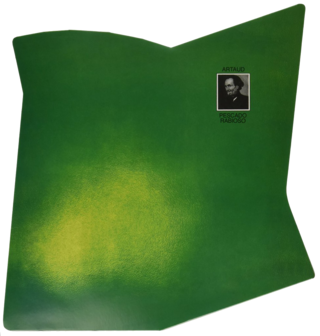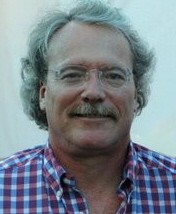Biography
His novel La mujer de Wakefield, a re-write of Nathaniel Hawthorne's Wakefield from Twice-Told Tales , was voted one of the "books of the year" by the Times Literary Supplement (UK). It was also selected for the Rómulo Gallegos Prize, and its French translation (Mme Wakefield) was short-listed for the prestigious Prix Fémina.
His latest novel, Todos los Funes, was a finalist for the Spanish Premio Herralde award.
Berti's books, originally published in Argentina and Spain, have been translated into English (Pushkin Press, UK), Korean and Japanese (Schinchosa), Portuguese (Temas e Debates) and French (Actes Sud and Grasset).
His translations from English into Spanish include With Borges (by Alberto Manguel), The Sandglass (Romesh Gunesekera), American Notebooks, a selection (Nathaniel Hawthorne), Lady Susan (Jane Austen), and also a couple of anthologies such as New York short stories (Edith Wharton, O. Henry, Thomas Wolfe, Dorothy Parker, etc.). He also translates from French into English, and is the author and translator of the anthology Contemporary French Short-Stories (2006), published in Spain.
In 2014, he was elected as a member of the Oulipo.

María de la Almudena Grandes Hernández was a Spanish writer. Author of 14 novels and three short-story collections, her work has been translated into twenty languages and frequently adapted to film. She won the National Literature Prize for Narrative and the Prix Méditerranée among other honors. Spanish Prime Minister Pedro Sánchez called her "one of the most important writers of our time."
Luisa Castro is a Spanish writer and journalist who has published in Galician and Spanish. She has lived in Barcelona, New York City, Madrid, Santiago de Compostela, Naples and Bordeaux. She is currently Director of the Instituto Cervantes in Dublin, Ireland.

Juan Jacinto Muñoz-Rengel is a Spanish writer. He studied philosophy and is the author of the essay 'A History of Lying'. He's also well known in his native country for his short stories and his novels, including El asesino hipocondríaco and El gran imaginador . His work has been translated into English, French, Italian, Greek, Finnish, Turkish, Arabic and Russian, and published in more than a dozen countries.

Enrique Vila-Matas is a Spanish author. He has authored several award-winning books that mix genres and has been branded as one of the most original and prominent writers in the Spanish language.

Andrés Neuman is an Argentine writer, poet, translator, columnist and blogger.

Artaud is a studio album credited to Argentine rock band Pescado Rabioso, released in October 1973 on Talent-Microfón. It is essentially the second solo album by singer-songwriter Luis Alberto Spinetta, who used the group's name despite their disbandment earlier that year.
Daniel Sada Villarreal was a Mexican poet, journalist, and writer, whose work has been hailed as one of the most important contributions to the Spanish language.

Sergio Olguín is an Argentine author, journalist and literary critic born on 29 January 1967 in Buenos Aires. Whereas most of the novels that he has published to date can be categorised as youth literature, he has also published stories and novels that do not fall in this category.

Alberto José Barrera Tyszka is a Venezuelan writer. In 2006, he received the Herralde Prize for his novel La enfermedad.

Juan Carlos Méndez Guédez is a Venezuelan writer. From an early age, he and his family moved to Caracas, where he lived in the popular area of Los Jardines del Valle, but always kept a close connection with his native hometown. He earned a Bachelor of Arts from the Central University of Venezuela with a thesis on poetry groups "Traffic" and "Guaire". Later, he earned a Ph.D. in Hispanic American Literature from the University of Salamanca with a thesis on the Venezuelan writer José Balza.

Carlos María Domínguez is an Argentine writer and journalist who has lived in Montevideo since 1989.
Patricia Esteban Erlés is a Spanish secondary school teacher, journalist for the Heraldo de Aragón and a short story writer. She studied Spanish language and literature at the University of Zaragoza. She She has won a number of major awards and her work has been included in several anthologies. Her stories have been praised by literary critic Rachel Rees for their “biting wit”.

Mariana Enríquez is an Argentine journalist, novelist, and short story writer. She is a part of the group of writers known as "new Argentine narrative". Her short stories fall within the horror genre, and have been published in international magazines such as Granta, Electric Literature, Asymptote, McSweeney's, Virginia Quarterly Review and The New Yorker.

David Roas is a Spanish writer and literary critic, specialising in fantastic literature. He is currently professor of Literary Theory and Comparative Literature at the Autonomous University of Barcelona, where he heads up the Fantastic Literature Studies Group.

Guadalupe Nettel is a Mexican writer. She has published four novels, including The Body Where I Was Born (2011) and After the Winter (2014). She won the Premio de Narrativa Breve Ribera del Duero and the Premio Herralde literary awards. She has been a contributor to Granta, The White Review, El País, The New York Times, La Repubblica and La Stampa. Her works have been translated to 17 languages. She is the editor of the Revista de la Universidad de México, the oldest cultural magazine in Mexico.

Fernando Iwasaki Cauti is a Peruvian writer and historian.

Nuria Barrios is a Spanish writer. She was born in Madrid. Her work spans genres, including both fiction and non-fiction.

Almendra is the self-titled debut studio album by Argentine rock band Almendra which was released in 1969 on Vik, a subsidiary of RCA Victor. To distinguish it from the band's next release, Almendra II, it is also known as Almendra I. The album represented the first full-length musical endeavour of nineteen-year-old Luis Alberto Spinetta, having formed the band in the mid 1960s along with Emilio del Guercio, Edelmiro Molinari and Rodolfo García. The famous artwork, showing a crying man with a toy arrow stuck on his head, was designed by Spinetta to embody the different lyrical themes of the album.

Anagrama is a Spanish publisher founded in 1969 by Jorge Herralde. In 2010, it was sold to the Italian publisher Feltrinelli.
Clara Obligado Marcó del Pont is an Argentine-Spanish writer.















